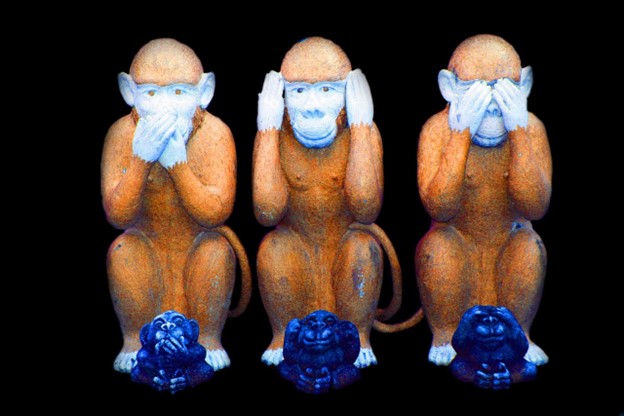Important: Before you study this lesson please watch this video, “Why?“. Example: If you or your client are in a relationship and the other person displayed an attitude of not being “Truthful”, you’ll need to master, and you’ll need to educate your client the following: “Confront and Level!”, “Assertive Communications!”, as well as “I Feel Good, PST!”.
Make sure to answer the questions at the end and follow the instructions for submission!
Definitions of mollification: The act of appeasing someone or causing someone to be more favorably inclined.
You might be asking yourself, “I am not a criminal, why do I need to learn this?” Well, the answer is simple. We are all humans, and “Mollification” is recognized by psychologists as a “Criminal Thinking Error.” Study it, don’t “Mollify Me!”
We often read or watch stories based on heinous acts of crime in the newspaper or on television. Turn on the news and you’ll get to know who got robbed or murdered. Pick up the newspaper with the morning coffee and the front page is often filled with stories that are not only shocking but also sometimes unbelievable.
We often wonder, “How can someone do that to someone else?” or “How do these people live with themselves after engaging in such monstrous acts that ruin lives?” But before we jump into answering these questions, it’s important to answer a few more questions.
Have you ever wondered why we do what we do? Have you ever wondered why we choose to engage in or refrain from certain acts?
We all do things from time to time which are considered unethical by our society. These acts can be as small as running a red light or as big as cheating on your spouse; as small as stealing a dollar from the donation jar or as big as engaging in money laundering.
But the reason why we engage in good as well as bad actions is because we find internal justification. We justify our actions by telling ourselves stories based our past experience, by denying the consequences of our actions and sometimes by altering the reality to make the consequences of our actions tolerable.
Criminals are no different. After all, they are also humans.
According to the book “The Criminal Lifestyle: Patterns of Serious Criminal Conduct,” by Glenn D. Walters, there are eight criminal thinking errors. These errors are, mollification, cutoff, power orientation, sentimentality, cognitive indolence or laziness, discontinuity, entitlement, and super optimism.
Each of these errors helps career criminals (those who engage in wrongful acts for a living) justify their actions to themselves. In this article, we are going to discuss mollification. One of the cognitive thinking errors that helps criminals in rationalizing their crimes, shifting the blame to others for their actions, and denying any injury or harm they inflict on innocent people.
Over the years, criminal psychologists who studied data on the motives behind the crimes have provided various insights. Each criminal act is powered by a motive. But the question arises, how do criminals justify their acts?
Some of the techniques used by criminals include self-deception, blame or denial. Almost all times, people who engage in wrongful activities are completely aware of the consequences of their actions. They are aware what they are doing is wrong and they are aware that the consequences can be severe. But they still choose to engage in these acts because severity gets masked by the methods they use for internal justification.
There are many ways these criminals justify their actions. While methods used might differ, the aim among the criminals is common, to mask the severity of the consequences. Some of these justifications are as follows:
My needs are also important.
Some criminals engage in wrongful activities because they feel cheated. They feel that the system and society are responsible for their current situations. “It’s completely unfair that he gets to drive an Audi while I have to put up with this piece of junk,” “He already has a lot of nice stuff, wouldn’t hurt much if I take some of it
forcefully,” “I don’t see why he gets to flaunt that Rolex while I am working really hard to buy bread and butter.” They feel it’s unfair that others have all the luxuries in life while their lives are full of struggle.
I want to be successful:
Many criminals choose to walk unethical paths because they want to succeed quickly. Somewhere they believe that the resources they have in their current situation are not enough to fulfill their aspirations. And hence they choose to take shortcuts. “I never went to college; I can’t get a job. The only way for me to have all the nice things is stealing,” “I might live in a trailer park but that doesn’t mean I have to deal with poverty for the rest of my life. I want to be rich.” While it’s completely fine to have aspirations, harming innocent people to fulfill your goals is not.
Using suppression to rationalize:
Many criminals choose to suppress their morality by using certain phrases. Typical phrases are, “I am doing this for my family,” “I need this and I am not overthinking it,” “This is the only way I can make things right,” “I have no choice, I am doing the right thing.”
Blaming and rationalizing:
One of the most common thinking patterns in criminals is blaming. They do things because according to them it’s always someone else’s fault. “I pulled the trigger because the person I was trying to rob was trying to resist,” “I stole that car because my mom always told me I would never amount to anything, and I can’t have nice things. It’s her fault, she raised me like this,” “I robbed the bank because the bank denied me the house loan because of my bad credit score.” Shifting the blame to others not only helps them justify their criminal acts but also frees them from taking responsibility. When a person thinks everything is someone else’s fault, he never puts in the efforts to change his behavior.
The Robin Hood:
This one is different from all the points above. Many criminals have motives behind committing a crime which result from hatred, envy, self-loathing, etc., but some criminals do it for the greater cause. Some criminals engage in crimes because they want to do greater good. They justify their crimes by saying, “It’s OK to rob a bank, I’ll donate half of the amount to an orphanage,” “It’s OK to mug that person because I’ll do nice things for the homeless people,” “It’s OK to steal that truck because my friend needs it for his business.” They justify their acts by telling themselves that their crimes are actually making the world a better place.
It’s important to understand that no matter what the motives are, a criminal act is never justified. Criminals might use the above reasons to justify their acts and might make use of blame or excuses to support their acts, but they are only creating a deception for themselves. They are lying to themselves. When criminals use reasons to rationalize their wrongful acts and point fingers at others, they are just denying responsibility.
The essay:
Please write an essay, up to two pages, about a past experience you or someone you know mollified your own wrongful action. Tell us in detail, who, what, when, where, why, to whom, the time, the place of what you did. The outcome! And tell us in detail how you could have changed that use from what you learned today so the outcome would have been good. Internalize this lesson. Make it become a part of you. Share your story in the Forums.
Our advice is for you to practice “Not Mollifying” for at least a week. Tell others around you to point out any event in which you didn’t. Have them hold you accountable. Visit the Forum and do a “CONFESSION.”
What is a Confession? A Confession is when you’ve displayed a wrong behavior and were held accountable by one of your family members, peers, or even yourself. Visit the Forum and tell us about it. We will give you feedback! Make sure to watch the video about Confession for more details! Furthermore, become a member of the Forum and give feedback to others!
Read the article? Time to introspect!
- Do you find yourself engaging in selfish behavior because your needs are important too?
- Do you suppress your thoughts when you think you are going to engage in an activity that’s morally not justified?
- What do you think about Robin Hoods? Do you think it’s justified what they do?
- Do you also put the blame on others or hold someone else responsible for your own actions? If yes, why?
- What steps do you think we can take to combat mollification?
Sources:
https://www.vice.com/en_us/article/gqmz4m/how-criminals-justify-crimes-psychology-gangsters-uk
This module includes the following:
- Introduction
- Why Become a Life Coach
- Entitlement
- Power Orientation
- Cut Off
- Easing through Thoughts / Mollify
- Super Optimism
- Discontinuity
- Sentimentality
- Cognitive Indolence
- Attitude Check & Confession
- I Feel Good, PST™
- Why?
There is no way any relationship will survive without having the qualities mentioned above.
Make sure to read each article carefully at least three time. Print your workbook (will be available per lesson.) Answer all questions and enter them in your workbook. Once you have completed this entire journey, you will be issued a Life Coach Certificate so long as you’ve been a member of the “Forums.”
Also, follow the instruction for sharing your story in our Forums as well as participating in our “Forums,” especially our unique “Confessions Forum” so you may gain practice, knowledge, experience, and expertise!
I am thankful that you have given me this opportunity to share all of this with you. May God bless you and bring prosperity and peace into your life.
Respectfully yours,
George Tannous, PhD
This is Where Confessions, Attitude Checks, Accountability, Give and Receive Feedback Comes in. Practice for Your Own Practice!
Well, you might be asking yourself “How am I going to get practice for my practice?” Great question and I thought you’ll never ask!
#1 You are part of a group with the same interests.
#2 You have a question in regards to one of your clients and we are here to help you.
#3 Others have questions and you can give feedback and help them.
#4 You need to do a confession.
#5 And much more.
You Are Never Alone! Join the Forums!
Once you have completed this entire journey, you will be issued a Life Coach Certificate. Must participate in our Forums to get certified! You’ll achieve your internship by joining and partcipating in our “Forums”.

